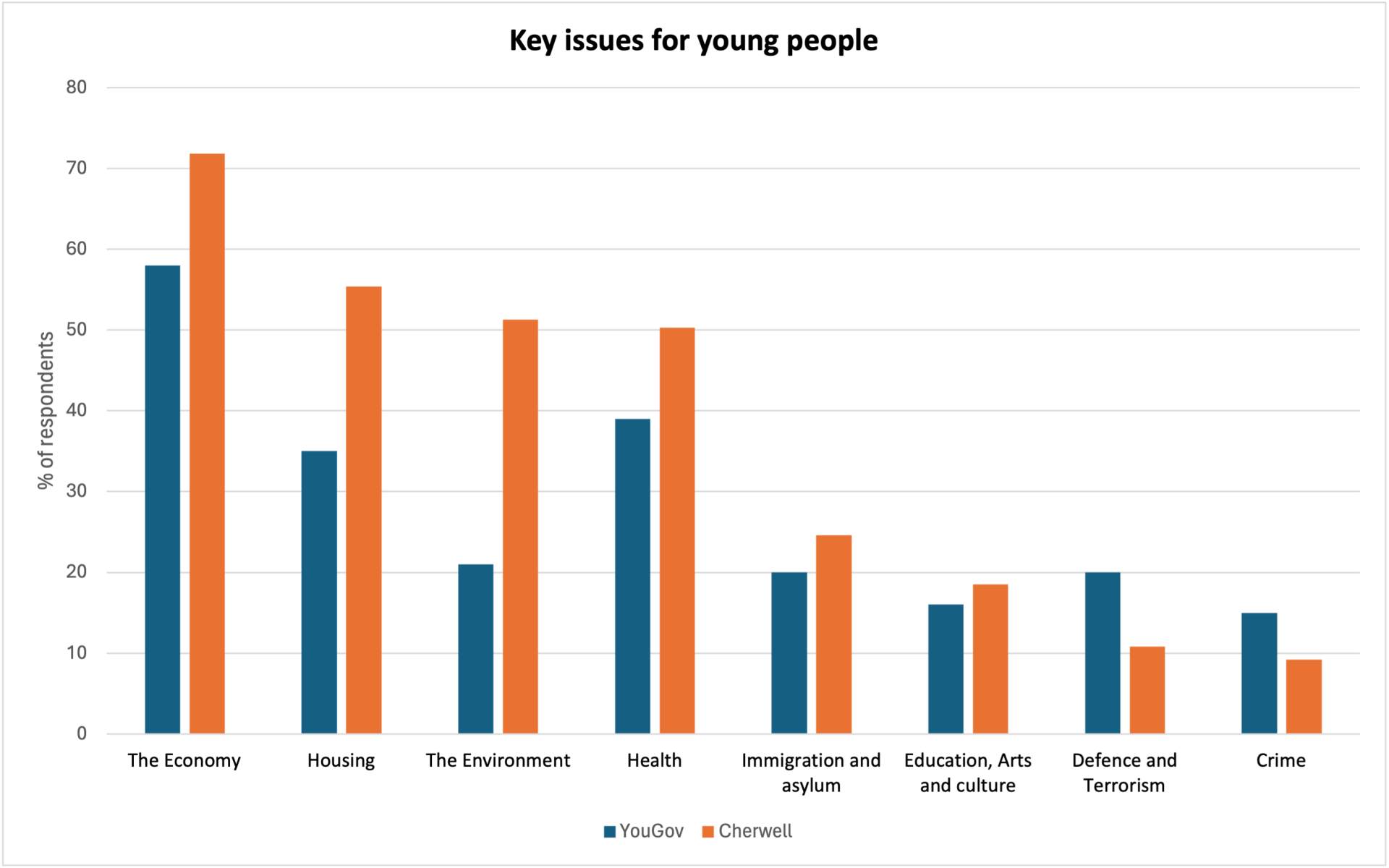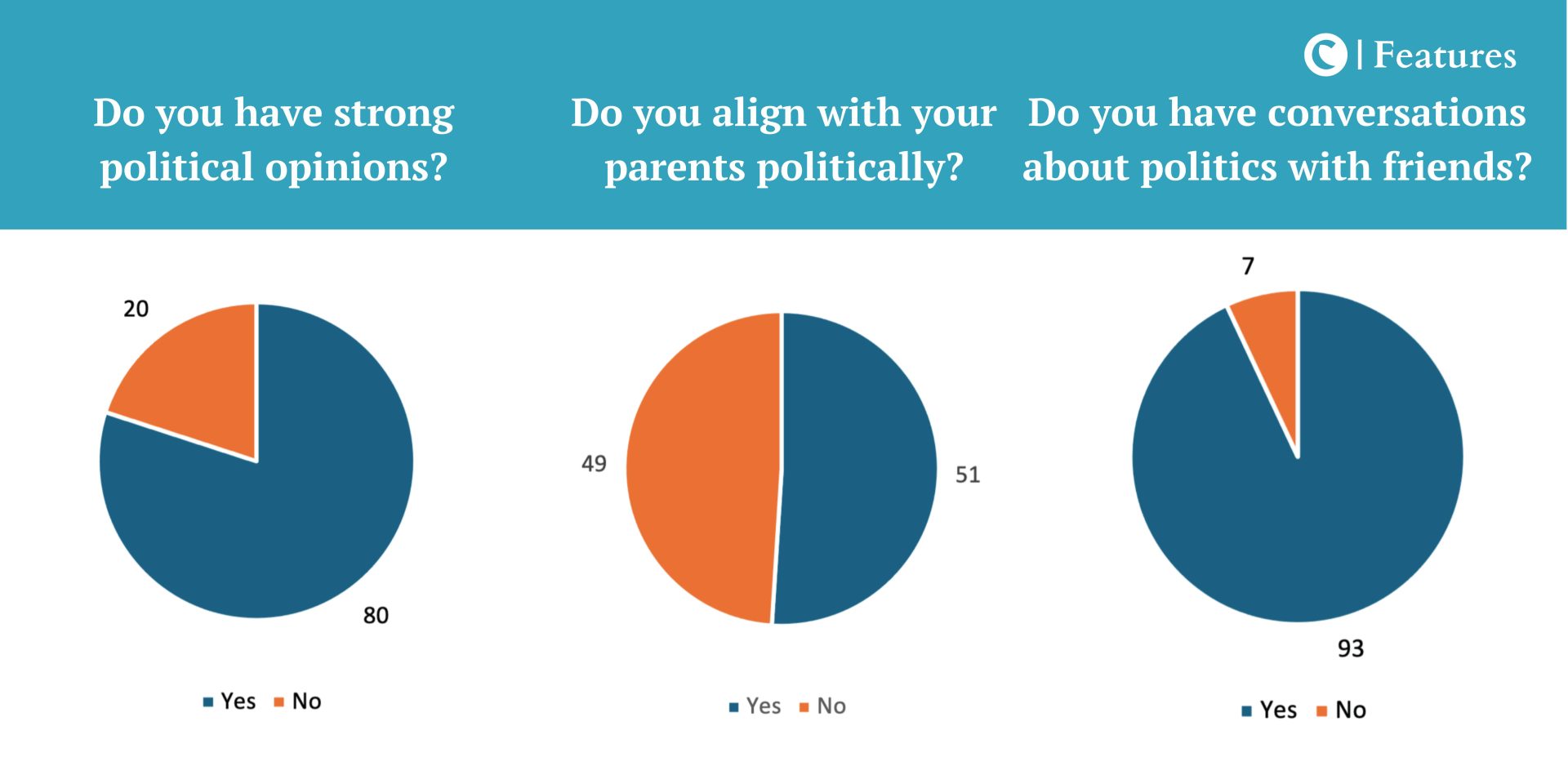Oli Dugmore, known best as the mind behind PoliticsJOE, echoes many of the views young, disillusioned voters hold. He mostly spends his time podcasting, editing, and sourcing the perfect viral clip. Dugmore also found time in his busy schedule to speak in this term’s Oxford Union debate on populism. But before he could step foot in the hallowed chamber, we sat down with him to discuss all things politics … and PoliticsJOE.
Dugmore, suited up in preparation for his showdown alongside Nancy Pelosi, greeted us in the same lighthearted and nonchalant way he does his ever-growing PoliticsJOE fanbase. A firm handshake and glass of Union red wine later, we got started with our questions.
Adam: PoliticsJOE has mastered the art of the ‘viral clip’, often taking the internet by storm with edits of politicians or street interviews. Does there have to be some balance between virality and high journalistic standards?
Dugmore: Given PoliticsJOE is a startup and a challenger brand, in its infancy it was, of course, very much about virality. The way to get people to find out about your publication and engage with the content is by trying to attract a broad audience and being like “we are here, take a look at us”. Take, for example, our mashup songs where we chop up bits of speeches and stick them together. They’re great. They travel super far […] but the people who see them don’t actually make much of a connection with the brand – so they’re a shallow [yet wide] audience.
Longer term – to build a sustainable brand – you need people to care, who want to watch everything you make because they like what you do. This is about building a narrower, deeper audience – through running events, asking people to subscribe or support you financially by selling merch, for example.
The ideal for PoliticsJOE would be for lots of people to see the content – and for it to make a difference. This means telling a story that changes someone’s life, brings about a change in government policy, or convinces people to see an issue in a different way. The ‘Goldilocks zone’ would be hitting all of these goals. Interestingly, though, we’re seeing an increasing trend of TV stations that nobody watches, but the Prime Minister will go on and be interviewed, […] yet won’t respond to us despite our mass market audience.
Oli: As someone who has seen PoliticsJOE’s clips online, but not seen you in them so much – where do you see yourself in JOE Media and how do you see it evolving?
Dugmore: So, as the Editor, while I do things like interview philosophers and politicians, and appear in the podcast, most of my day to day is background. It’s editing. I commission pieces, provide feedback, and decide strategy.
An old boss of mine once told me that you can either be in the field doing journalism, or you can be at the desk editing; you can’t do both. I’ve always sought to prove him wrong. I haven’t really figured it out yet, but what makes me happiest is being out there, doing the journalism, which is what I was doing when I was the only member of staff for the PoliticsJOE wing of JOE Media.
That entailed a lot of being out on the street all the time, ‘Vox pop’-ing, and going and doing reporter features. Unfortunately, there’s less and less time for me to do that now. It is, however, the virtue of it: I’ve been doing this for six years, I’m the last man standing in a way, and to a certain extent you ascend the ranks within a company, inevitably, because you’ve been there for so long. I’d be interested to know what you guys think, whether you get more satisfaction from editing compared with writing?
Oli: Well, we spent 16 hours yesterday staring at screens laying in for our print edition which comes out every two weeks.
Adam: We didn’t finish until midnight, basically. But that’s what we do, as Editors-in-Chief.
Dugmore: Exactly. Quite often, too, your journalists’ pieces are really successful, and they’re the ones who rightly get the plaudits for it. So it can feel like a thankless task, but there’s lots of invisible labour which is really important.
This is probably a slightly broader comment on society too. In our modern age, there’s a trend towards yearning for the adoration of strangers, especially on social media, but I think why the fuck do I care what ‘Jim in Preston’ thinks?
I don’t respect Jim. Jim doesn’t respect me.
I care about the opinions of people I respect, about the opinions of my colleagues, about the opinions of my family. I care about the opinions of my close friends.
Oli: Is that why you think JOE Media is different from other media? It’s provocative, and does that play on the feelings of those you’re interviewing and of your readership?
Dugmore: I don’t think it has anything to do with ‘provoking’ people. When you look at funny, provocative sells on twitter, or at a finely balanced headline on YouTube, some might call it clickbait, but I would say it balances clarity and curiosity perfectly.
Take, for example, the sinking of the Belgrano. Many see it as a war crime. Writing “Gotcha” on your front page [as The Sun did in 1982] is certainly a provocative way of getting people to buy the paper and engage with the story.
So, rather than just rejecting your point, and engaging with the substance, if you look at a pre-Politics JOE world and ask how much of the traditional legacy media is actually catering to younger audiences, it pales in comparison with that which exists for older voters, homeowners, and those who actually buy newspapers.
So, maybe I am prepared to have a slightly more guerilla, by any means necessary, approach, in an attempt to get young people to engage with politics, and actually for them to say maybe there’s a connection between me being apathetic and my generation constantly getting a kicking from the political class. And if I have to publish some provocative ‘Vox pops’ to do that, then yeah I’m going to.
Adam: How do you see PoliticsJOE’s role in shaping the mobilisation of young people this year with the general election, specifically in making sure young people do care about politics?
Dugmore: That connects to the previous point. So, take the issue of housing, for example. If I can get national politicians to actually take housing seriously, and not just have an incoming Labour government say that they’ll do 10–20% better than the current Conservative government in terms of house building, which doesn’t address the scale of the problem, then I’ll do so.
If we can impose enough political consciousness, public pressure, or media pressure for them to take the issue seriously, then that would be a success. Such a challenge could also be applied to the environment, arts and culture, nightlife, and mental health provision, to name but a few issues.
My job is to inform my audience and get them to care, not to get Starmer or the Labour Party elected. But I don’t think we necessarily need PoliticsJOE to make young people care, given the debacle of GCSE results, the debacle of A-Level results, the insecure job market, the insecure housing market, again to name but a few issues. Young people want to give the government a kicking.
The only thing I can’t abide is apathy. If you say “I don’t care, it doesn’t make a difference, I’m not into it”, that’s unacceptable. That, though, is a very different position to saying that you opposed on a political level to the system of government in this country and that voting would be tacitly consenting to such a form of government.
Adam: On a different note, AI is obviously going to be big going into the election too. What are we going to do in terms of making sure we can trust the media?
Dugmore: Do you trust me?
Adam: I don’t know.
Dugmore: I’ll tell you a story. There’s a guy called Swede Mason (aka Swedemason), who makes most of our truly viral content, like the mashup speeches, the songs, the AI. The AI is the crucial one. We started a podcast last year, and I told Swede I wanted him to use AI to train the voice of Jacob Rees Mogg to say “after Nanny puts Sextus to bed, there’s nothing I like more than to sit and listen to the PoliticsJOE podcast.”
Swede said to me he didn’t think we could do that one, because how would anyone know that this is AI and not something we’ve just created? Rees Mogg probably wouldn’t like the podcast, probably doesn’t like PoliticsJOE, and it would be unethical for us to do this.
To which I said: Swede. If you were ill or on holiday, is there anything to stop me from publishing this? No. Mentally I’m still a teenager in my bedroom. At the moment, though, we’re settling for just using his voice in Goodfellas intros to make jokes about Johnson and things like that.
Adam: How do you deal with legal issues around that too then? Especially considering defamation, for example?
Dugmore: Of course, standard rules still apply, and we have to be careful and not sink the publication in terms of legal costs.
AI is already being used in newsrooms, though, in a much less sexy way – it’s being used in things like transcription services [gesturing at the transcriber]. Sean, my esteemed colleague, often uses Adobe’s AI feature to create thumbnails for our YouTube. People often think about the apocalyptic, and fail to think about the ways it’s already being used in the workplace.
We also can’t absolve the electorate of responsibility. If, for example, you see someone with six fingers telling you to invade Iran, that’s kind of on you – you should be paying attention. But AI can also be used for good. For example, it can be used to verify war footage circulating on social media through geolocation by using open source information. So there’s a world in which AI can assist journalists to do their job better.
Oli: Last thing. We’ve got some quick fire questions for you. First off – how would you describe JOE Media in just a couple of words?
Dugmore: Social media publisher for a modern, young British person.
Oli: Advice to first time voters?
Dugmore: Vote.
Oli: Advice to young Journalists?
Dugmore: Get as many bylines as possible. Ideally, don’t study journalism – study something you’re interested in, and become an expert in it.
Oli: Most importantly, what do you think of our new social media redesign?
Dugmore: My rates are very affordable. Has this whole interview just been a consultation on digital media strategy?
Oli and Adam: No… but you should check out our Instagram [@cherwelloxford, for those interested].













